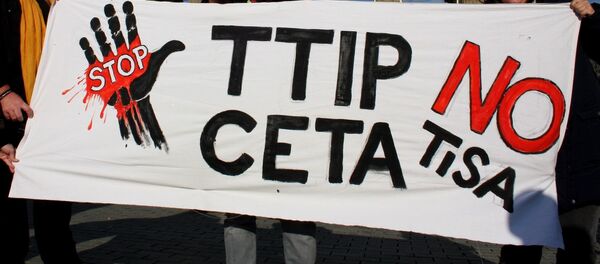What has been termed a "toxic" deal has been widely criticized for bypassing the multilateral format provided by the World Trade Organization (WTO) and national regulations, as well as for excluding some major global players, such as the BRICS emerging economies – Brazil, Russia, India, China and South Africa.
"A lot of developing countries are not in TiSA talks. Why are those who control 70 percent of global trade in services negotiating the deal where others are not participating?" Scholz said on the sidelines of the WTO Public Forum. "The United States until today refuses that China should and could join TiSA."
The German lawmaker said that inviting China to join the negotiations would change the way issues are addressed since it would mean that "you really have to deal with the fact that China is one of the biggest trading powers in the world and the biggest market."
"It looks like a certain club of countries representing big enterprises is setting standards to [apply to] others who will have just to take them or leave them, but will not have any influence on them," Scholz noted. "It is a question of democracy, who has the right to regulate."
TiSA opponents argue that the controversial deal only seeks to tear down trade barriers to services Washington wants to sell abroad and paves the way for supranational labor laws, as well as finance and industrial policies that will undermine national a government's ability to protect its citizens.


